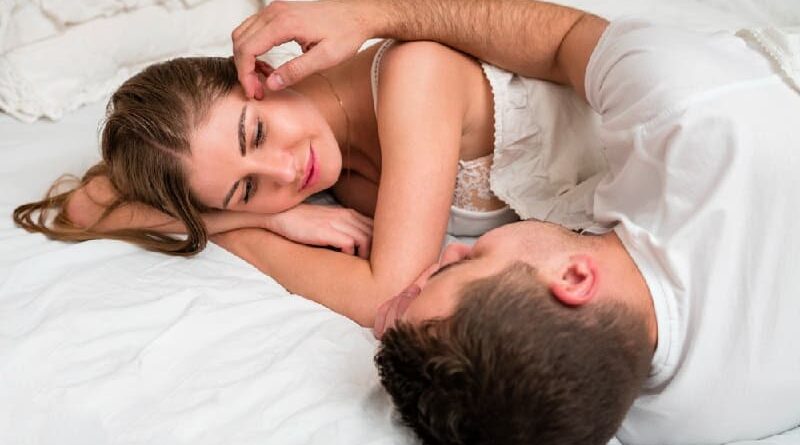How long after ovulation can someone get pregnant?
After ovulation, it is possible to get pregnant. There is a good chance of getting pregnant if a person has sex within 12–24 hours of releasing a mature egg.
When a mature egg is released from one of the ovaries, this is called ovulation. At this time, the body is ready to accept sperm and start a new life.
If the egg doesn’t get fertilized, it breaks down into the lining of the uterus. The body then gets rid of the dead cells during a person’s period.
Ovulation can last between 12 and 24 hours. When an egg is released from the ovary, it lives for about 24 hours before it dies, unless it is fertilized by a sperm.
If a person has sex in the days before or during ovulation, there is a good chance that they will get pregnant. This is because sperm can live in the cervix for up to 5 days. It is important to know the fertile window because of this.
You will be Interested on : Lack of Ovulation and Ayurvedic Treatment
What is the fertile window? How is it calculated?
The fertile window is the time when it is possible to get pregnant through sexual activity. This is the day of ovulation plus the amount of time the sperm can stay in the cervix before fertilizing the egg.
The American College of Obstetricians and Gynecologists (ACOG) says that a person can get pregnant from 5 days before until 1 day after ovulation if they have sex.
The fertile window can be different for each person, depending on their menstrual cycle.
To figure out the fertility window, a person should keep track of the days from the first day of their period until the day of their next period. The menstrual cycle takes place during this time. Most women who menstruate have a cycle that lasts about 28 days.
The Office on Women’s Health says that for some women, it may last 21–35 days. The ACOG says that ovulation happens around the 14th day of a woman’s cycle.
For example, a woman with a 28-day cycle will be most fertile five days before her ovulation date.
Keep reading : Trying to Conceive – Time Your Efforts for Fertility Window
How many days after ovulation is it possible to get pregnant?
12–24 hours after ovulation, it is possible to get pregnant. This is because the sperm can only fertilize an egg for 24 hours after it has been released.
You will be Interested on : Ayurveda Treatment for Female Infertility
What is the likelihood of becoming pregnant on each day before or after ovulation?
Different people have different chances of getting pregnant in the days before and after ovulation.
An older study from 1995 looked at how the time of sexual activity affected ovulation and the chance of getting pregnant.
There were 192 babies born to 221 healthy women. Researchers came to the conclusion that, depending on the day, the chances of getting pregnant during the fertile window were between 10% and 33%.
| 5 days before ovulation | 10% |
| 4 days before ovulation | 16% |
| 3 days before ovulation | 14% |
| 2 days before ovulation | 27% |
| 1 day before ovulation | 31% |
| Ovulation day | 33% |
The same study’s authors also say that there is a 12% chance of getting pregnant on either day 7 before ovulation or the day after.
But your chances of getting pregnant before or after ovulation depend on things like:
- age
- frequency of sexual intercourse
- menstrual cycle
Keep reading : How Long Does It Normally Take to Get Pregnant?
What methods are available to track or predict ovulation?
Tracking ovulation is important for people trying to get pregnant so they can find the most fertile days in their menstrual cycle.
Here are some ways to keep track of or guess when ovulation will happen:
Basal body temperature charting
- The temperature of the body when it is at rest is called the basal body temperature (BBT).
- Taking your BBT every morning when you wake up for a few months will help you figure out when you will ovulate.
- BBT goes up a little bit during ovulation or as it gets close. A digital thermometer can be used to keep track of these small changes.
- By keeping track of BBT, you can find out when you ovulate and, from there, figure out when you might be able to get pregnant.
Ovulation predictor kits
- With ovulation predictor kits, like test strips and digital tests, you can measure the level of luteinizing hormone (LH), which usually rises during ovulation.
- To notice the rise in LH, a person must take tests for several days in a row.
- Once they see a steady rise, experts say they should have sex every day for the next two days to increase their chances of getting pregnant.
You will be Interested on : Ayurveda Treatment for Male Infertility
Cycle charting apps
- Several cycle apps, like the Clue period tracker and the Flo period ovulation tracker, can help you figure out your fertile window and ovulation period.
- Using these apps to track ovulation will show the date of ovulation and the days when a person is most fertile.
Fertility monitors
- Using fertility monitors to track ovulation can help people who are trying to get pregnant or who want to avoid getting pregnant plan when they will have sexual activity.
- Fertility monitors work by keeping track of important changes in the body, like the basal body temperature, heart rate, and breathing.
- The fertility monitor can predict the fertile window by putting all of this information together.
Cervical mucus method
- If you look at the mucus in the cervix, you can get an idea of when a person might be ovulating.
- As ovulation nears, the mucus in the cervix changes to a thin, clear, stringy, and slippery texture. Maybe it looks like raw egg whites.
- During intercourse, the mucus helps the sperm swim to the egg after it has been released.
- Because of the high chance of getting pregnant, this is the best time to have sex.
You will be Interested on : How Long Does It Take to Get Pregnant After Having Sex?
How to determine the best time to have sex to conceive
Keeping an eye out for ovulation signs like a slight rise in BBT, changes in the mucus in the cervix, and a stronger desire to have sex can help you figure out the best time to have sex to increase your chances of getting pregnant.
Having sex during the fertile window also makes it more likely that you will get pregnant. During this time, the body is ready to accept the sperm that will help the egg grow.
Keep reading : Best Time to Have Sex to Get Pregnant
How can a person know if they are not ovulating?
On average, a woman’s period lasts anywhere from 21 to 35 days.
A person may not be ovulating if they have an irregular or missing cycle that lasts less than 21 days or more than 35 days.
Keep reading : Why You Can’t Get Pregnant
When to speak with a doctor
If a person tries to get pregnant for a year and doesn’t get pregnant, they should talk to a doctor.
When to get help may also depend on how old you are. People between the ages of 35 and 40 should talk to a doctor after trying to get pregnant for six months. A doctor or nurse may do some fertility tests on people over the age of 40.
A doctor may also check for signs of infertility or to see if a person has a history of irregular periods, pelvic inflammatory disease, endometriosis, treatment for cancer, or multiple miscarriages.
Summary
A person can get pregnant 12–24 hours after ovulating because an egg that has been released can stay in the cervix for up to 24 hours.
It is very important for people who are trying to get pregnant to know about the menstrual cycle.
A person can also try to get pregnant by using methods like BBT charts, cycle charting apps, fertility monitors, changes in cervical mucus, and ovulation predictor kits.
Related Links :
- Ayurveda Infertility Treatment Clinic in Ahmednagar
- Ayurveda Infertility Treatment Clinic in Piriyapatna
- Ayurveda Infertility Treatment Clinic in Nellore
- Ayurveda Infertility Treatment Clinic in Bethamangala
- Leading Ayurvedic Sexologist in Shivarampally Jagir
- Ayurveda Infertility Treatment Clinic in Hungund
- Ayurveda Infertility Treatment Clinic in Kundgol
- Ayurveda Infertility Treatment Clinic in Thrissur
- Ayurveda Infertility Treatment Clinic in Gogipeth
- Ayurveda Infertility Treatment Clinic in Khambhalia





